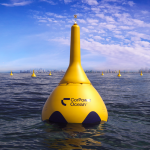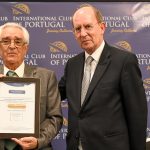Turning over a new leaf? Sandra Maximiano inherits ‘hot potatoes’ at Anacom
It’s not been good for the past few years for Portuguese telecoms regulator ANACOM. It has been attacked by the government and accused on delaying out the rollout of 5G. It was reviled by the big three telecoms operators NOS, Altice Portugal and Vodafone, which were set against new operators entering the market and benefiting from the networks of the other three. It all resulted in a punishing war of contrition involving 5G licence auctions that dragged on interminably.
Now, after the dust has settled, the body has appointed a new leader, Sandra Maximiano with a number of ‘hot’ dossiers on her table including 5G coverage obligations, white zone coverage, the exclusion of Huawei, and the replacement of submarine cables that link Portugal and the Portuguese islands.
So what has the new manager inherited? From 2020 onwards Portugal’s telecoms environment turned outright hostile with a war waging between the monopolistic big three, Anacom and the government that wanted the row to simply blow over.
Nowo planned to become a fully fledged national player while the pro-consumer ANACOM stepped up its rhetoric against the big three and used the 5G spectrum auction to facilitate a change in the market structure to allow new kids onto the block which it felt would create a more dynamic and competitive market, and give consumers more choice and a better deal in the marketplace.
In 2021, Already at war with the three companies that dominate Portugal’s mobile phone market, national regulator ANACOM came under fire from the government over the 5G auction that dragging on for months with no end in sight.
Delayed by the COVID-19 pandemic, the auction of several spectrum lots was eventually launched by ANACOM in January 2022, despite legal challenges from major players which said the rules unfairly favoured the new entrants.
The regulator allowed operators to raise their bids by just 1% above rival offers, creating a drawn-out process of incremental increases.
Recognising a “very slow evolution,” ANACOM then changed the rules to require a minimum increase of 3% to speed up the process.
Prime Minister Antonio Costa then blamed ANACOM for causing a “huge delay” to Portugal’s 5G progress saying in 2021: “We all agree the auction model that ANACOM has invented is obviously the worst possible”.
Keeping the Chinese out
In September this year, Portugal’s telecom watchdog worked with operators to implement a high-level resolution which effectively barred Chinese telecoms equipment supplier Huawei from using its equipment in the country’s 5G mobile networks, despite legal objections from the Chinese company.
The CSSC council — the Portuguese prime minister’s consultative body — made a resolution under encouragement from the US authorities, and although it did not name Huawei, the restrictive measure was seen as a blow to efforts by the Chinese group to enter standalone networks in Portugal’s 5G market and extend contracts on 4G platforms on which the new technology is based. The reason: unfair competition as the company is seen as a proxy Chinese State company and security reasons.
So, after week of uncertainty, Sandra Maximiano has been appointed, with Prime Minister António Costa’s blessing, to head the telecoms watchdog.
She is an economist and ISEG professor and is accepted by the main opposition party PSD. Maximiano replaces João Cadete de Matos who became a controversial figure during the Portuguese 5G telecoms wars.
The deadline to meet the first targets of 5G coverage is up at the end of December and it will be up to the new ANACOM leader to check that the measures were met.
The obligation is for a 75% 5G coverage of the population in each one of the parishes considered to be low density, including each one of the parishes in the Azores and Madeira. Then, the operators have two years to achieve a coverage of 90%.
Coverage also of the so-called ‘white zones’ will also see developments. At the request of the Government and within the scope of its assigned responsibilities in providing assistance to the Government, ANACOM is promoting a public consultation on the deployment of very high capacity public electronic communications networks in ‘target areas’ using public funding, particularly funding from the European Union.
This is the third public consultation launched on the identification of ‘target areas’, the first one having been launched in January, and the second in October with a more accurate identification of ‘white areas’, based on coverage information with a granularity at address level (where each address corresponds to a single building).
In this third consultation, the algorithm for determining the ‘target areas’ was significantly improved, taking into account both the contributions received from the previous consultations and the search for an optimal solution that would meet the defined basic criteria more efficiently.
In total, 37 173 statistical subsections have now been identified as ‘target areas’, spread over 1837 parishes in 283 municipalities across the country. A total of 455 thousand buildings are covered, corresponding to around 474 thousand dwellings and buildings related to industrial, commercial or agricultural facilities.
The target areas’ can be deemed to cover only areas where no high capacity network exists or is planned to be installed within the relevant time horizon, or, where only one network exists, it covers no more than 10% of the dwellings in the area.
The public consultation now launched aims to obtain input from all interested parties, namely network operators and electronic communications service providers, on possible future investment plans — for a relevant time horizon of 6 (six) years — in very high-capacity electronic communications networks in ‘target areas’ identified herein (geographical areas where such networks are not currently available).
As to the exclusion of Huawei, the operators are currently preparing implementation plans with it falling to Sandra Maximiano to ensure that decisions and actions published in May, 2024 are carried out.










